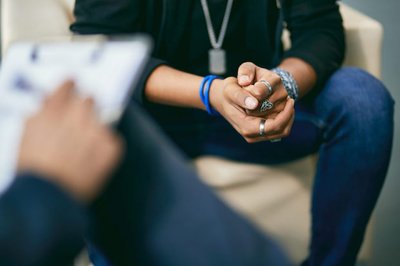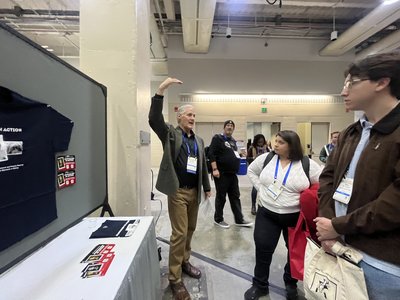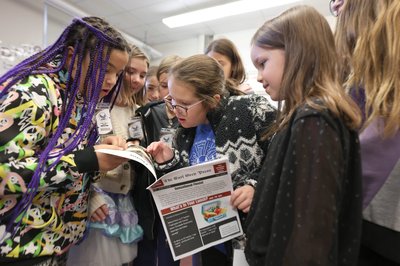by Sari Beth Rosenberg
In this month's State of the Union address, President Joe Biden addressed the youth mental health crisis in America.
As a teacher, I was not surprised to hear Biden discuss mental health among critical topics facing the country. As a high school teacher, I have observed a rise in students struggling with mental health issues, starting last year when we fully returned to in-person learning.
Spending over a year in Zoom school took a tremendous toll on everyone, but especially on those students who were already managing various mental health concerns before March 2020.
"Almost 80 percent of people aged 18 to 25 reported feeling lonely. In comparison, only about 40 percent of people over the age of 66 reported feeling lonely."
A new report by the CDC released last week made headlines when it showed that 3 in 5 teenage girls are experiencing continuous sadness and hopelessness.
One year ago, the U.S. Surgeon General released an advisory report stating depression and anxiety had doubled during the pandemic, with 25 percent of youth experiencing depressive symptoms and 20 per cent experiencing anxiety symptoms.
According to a 2021 study from Morning Consult , almost 80 percent of people aged 18 to 25 reported feeling lonely. In comparison, only about 40 percent of people over the age of 66 reported feeling lonely.
Related Lesson: Teenage girls experiencing record high levels of sadness, violence and trauma
The study cited social media as a significant factor as to why younger generations experience loneliness at higher rates than older people.
So, what is the solution?
We need federal legislation to provide better mental health services at school and protection online.
President Biden stated in his State of the Union Address that we need to increase mental health services at school and also protect children on social media: "When millions of young people are struggling with bullying, violence, trauma, we owe them greater access to mental health care at school."
The White House announced a series of steps to address mental health at a federal level, including a $280 million grant program to increase the number of mental health care professionals in high-need school districts.
"We need federal legislation to provide better mental health services at school and protection online."
Psychiatrist Dr. Gary Rosenberg , who has been a frequent guest on PBS NewsHour Classroom's Educator Voice Zoom show, supports the need for more mental health professionals in schools. Dr. Rosenberg also happens to be my father, and so we've had countless conversations about adolescent mental health over the years.
“Teachers continue to be asked to do more than teach," he said in a recent conversation about mental health issues, adding that school systems and child study teams will hopefully begin to provide support and resources that some districts desperately needed.
Dr. Rosenberg helped found the New Jersey Primary Care Child Psychiatry Collaboration, a state-funded program that pairs psychiatrists with pediatricians to help reach the one-in-five children who also suffer from mental health issues.
But young people can also serve as some of the best sources of help for each other. One great example of a successful teen volunteer crisis support line is in Oregon, a state that ranks among the worst states for youth mental illness and access to care.
The call center for YouthLine in Portland, Oregon, is where teenagers field calls from other teenagers who are struggling. You can learn about it in this latest PBS NewsHour segment. You can also find more helpful resources online below the video.
Online resources
Cartwheel Care is a platform that provides schools with rapid access to affordable, evidence-based mental health care for students and families.
MentalHealth.gov is an excellent resource; the site includes a list of warning signs , such as students feeling sad or withdrawn for more than two weeks, extreme difficulty concentrating and intense worries or fears that get in the way of daily activities.
SoundMind is a music therapy app that provides tailored audio and visual therapy that can help reduce anxiety and stress, improvements in concentration, focus and sleep
The Trevor Project provides 24/7 crisis support services to LGBTQ young people. You can text, chat, or call anytime to reach a trained counselor.
On Our Minds is podcast from Student Reporting Labs in which teen hosts discuss youth mental health and generational challenges.
Sari Beth Rosenberg is an award-winning U.S. history teacher and writer. Sari has been the host of NewsHour Classroom's Educator Voice Zoom show for three years. She helped write the new Global and U.S. History curriculum for the New York City Department of Education with a small team of educators. In March 2019 she was awarded the Paul Gagnon Prize by the National Council for History Education. Find her on Twitter & Instagram @saribethrose and at saribeth.com .





